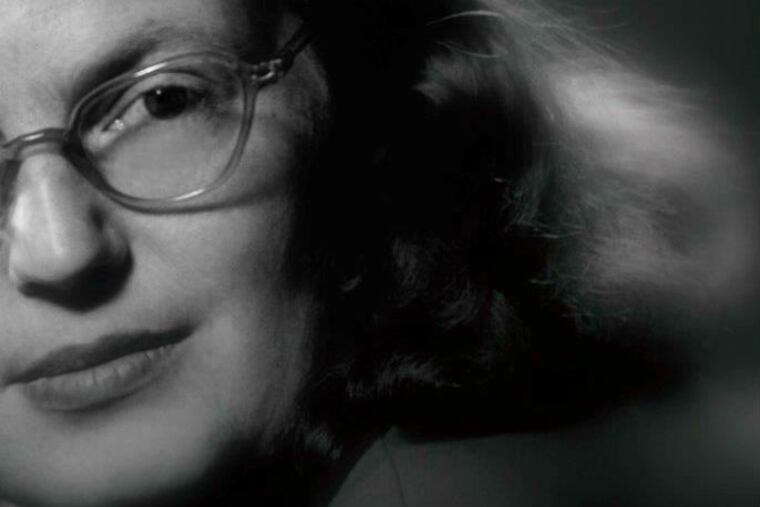'Shirley Jackson': A great American original and her demons
It has long been a puzzle to some - and will come as a surprise to others - that the Shirley Jackson who wrote the deeply disturbing short story "The Lottery" and chilling novels including The Haunting of Hill House was the same author who wrote breezy, laugh-out-loud-funny works such as Life Among the Savages, about raising her four children.

Shirley Jackson
A Rather Haunted Life
By Ruth Franklin
Liveright.
624 pp. $35
nolead ends nolead begins
Reviewed by Kathye Fetsko Petrie
nolead ends
It has long been a puzzle to some - and will come as a surprise to others - that the Shirley Jackson who wrote the deeply disturbing short story "The Lottery" and chilling novels including The Haunting of Hill House was the same author who wrote breezy, laugh-out-loud-funny works such as Life Among the Savages, about raising her four children.
But as Ruth Franklin tells us in this new biography of Jackson, these two seemingly opposite authorial personas are, in fact, profoundly interconnected.
"Her horror stories, which always take place primarily on a psychological level, are grounded in the domestic," Franklin writes. "Meanwhile, the domestic tales often need only the slightest tap to take on a darker shade."
Jackson was born 100 years ago this December to a mother who, throughout Jackson's life, never missed a chance to tell her daughter what a disappointment she was. The criticism could be overt or passive-aggressive, sometimes both simultaneously. When Jackson made the New York Times best-seller list, for instance, her mother ignored the authorial achievement and instead chastised her for looking awful in her author photo.
Such a mother/daughter relationship might alone be enough to account for the percolating darkness that permeates Jackson's writing - and for her early suicide attempt, her lifelong anxiety and depression, and her late-life agoraphobia and colitis.
Sadly, there's more.
Jackson's husband, the critic Stanley Hyman, applauded her writing publicly but oppressed her privately. The relationship began promisingly. Hyman fell in love with Jackson on reading a published story of hers, before they'd even met. During all the years they were married, Hyman never did anything domestic, including driving, that might have given his wife more time to produce her stellar writing. Once Jackson became the family breadwinner, his encouragement of her writing became less validation of her genius than pressure on her to make money.
Worst of all was Hyman's habit of infidelity, which caused Jackson excruciating anguish.
Jackson's tortured life was first revealed in the 1988 biography Private Demons: The Life of Shirley Jackson, by Judy Oppenheimer. Since then, caches of unpublished manuscripts and other materials have been discovered, including once-lost letters Jackson wrote to a fan-turned-confidant that Franklin herself retrieved from a dusty shed.
Franklin has made full use of these additional materials. The result is a biography rich in new details, stories, and analysis. Franklin expands our understanding of how the evils of the times in which Jackson lived - racism, anti-Semitism, war, fear of nuclear annihilation, McCarthyism - affected Jackson's writing and psyche. She shows how Jackson developed her major theme - of human cruelty lurking just beneath the surface - and why "the masterly way in which Jackson used the classic tropes of suspense to plumb the depths of the human condition" places her in the same literary Gothic American tradition as Poe and Hawthorne.
But the freshest contribution here is her interpretation of Jackson through the lens of the pre-feminist era in which she lived. Franklin demonstrates that, years before Betty Friedan wrote The Feminine Mystique, the author was ahead of her time in focusing on the suppression of women's lives. Jackson's body of work, Franklin writes, "constitutes nothing less than the secret history of American women of her era."
Kathye Fetsko Petrie (www.kathyefetskopetrie) is a freelance writer and the editor/founder of Local LIT at www.locallit.com. You can follow her on Twitter @locallit.